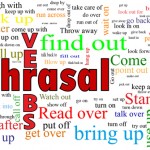In English, there are two forms of voice — active and passive. In the active voice, the subject performs the action. In the passive voice, someone or something influences the subject in a certain way. Therefore, the passive voice implies that the subject does not perform any action, but experiences a certain action.
Active voice: Michael repaired the car last Sunday.
Passive voice: The car was repaired by Michael last Sunday.
So, the car did not repair itself, but someone repaired it. In this case, Michael did it last Sunday. In the passive voice, the emphasis is on the result, not on the subject that performs it — in this case, the subject is either obvious (it can be mentioned in the context of the sentence / text) or unimportant (it does not matter who did the action, only the result is important).
How to build a passive sentence
The form of the passive voice is constructed using the verb to be (it varies depending on the tense) and the third form of the main verbs (words from the third column of the table of irregular verbs or regular verbs ending in «-ed»).
In order to indicate the one who performed the action, you must use the preposition «by» after the passive construction, then mention the subject.
This car was repaired by Michael.
This project will be finished by our team.
Room had been cleaned by my brother.
Note! When constructing a sentence, it is undesirable to use the pronouns «him», «him» and «them», because it is not clear enough whom we are talking about.
Forms of the verb «to be» in the passive voice
Forms of the verb «to be» in the passive voice change with tenses. In some tenses, sentences in a passive voice sound very cumbersome and set the teeth on edge. Such large constructions are usually replaced with simpler ones.
| Tense | The form of the verb | Example |
| Present Simple | am/is/are | - The work is done. - The curtains are washed. |
| Present Continuous | am/is/are + being | - This film is being watched. - Our cars are being washed. |
| Present Perfect | have/has been | - Projects have been already done. - This sandwich has just been made by Mike. |
| Past Simple | was/were | - TV was bought yesterday. - Books were written in 1782. |
| Past Continuous | was/were + being | - Film was being shown at Brooklyn Cinema. - CDs were being played during last night. |
| Past Perfect | had been | - The article had been typed by 7 o’clock yesterday. |
| Future Simple | will be | - Breakfast will be cooked by Tommie tomorrow. |
| Future Perfect | will have been | - Report will have been done by this time tomorrow. |
| Future in the Past (Simple) | would be | - I thought I would be notified. - He didn’t expect he would be blamed. |
| Future in the Past (Perfect) | would have been | - She wrote me that dinner would have been cooked at 2 p.m. |
In some tenses (Future Continuous, Present Perfect Continuous, Past Perfect Continuous and Future Perfect Continuous), be verb is twice repeated. Thus, it is hard to build sentences, the tautology irritates the ear and can cause bewilderment.
To avoid tautology, you can replace complex forms with simple ones: Future Continuous for Future Simple, Present Perfect Continuous for Present Perfect, Past Perfect Continuous for Past Perfect and Future Perfect Continuous for Future Perfect.









